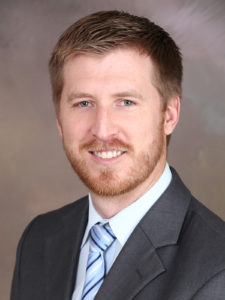
Here at Harrington Group, our fire protection engineers and consultants vary in their experience level – from those that are just starting out, to those that are in the middle of their career, to those that have been practicing fire protection engineering for over 30 years. I thought it might be interesting to hear what advice they would give to someone just starting out, and here is what some of our engineers had to say:
 Nolan McCarthy, Fire Protection Engineer, with Harrington Group for over eight months (in the industry for over seven years). Fire protection engineering is such a broad field, which is one of the reasons why I like it so much. But, a byproduct of that, I believe, is a wide array of fire protection engineers. In other words, there are some great ones, some not-so-great ones, and everything in between. The one piece of advice I’d give to someone considering the fire protection engineering field is to go about it with a purpose. Fully vet the companies and those who would be your supervisors/mentors, and make informed decisions about your career path. Quality engineers who can properly mentor you will propel your career, allowing you to have quality early years of developing a broad scope of skills and knowledge. This isn’t limited to just potential employers; professors are a great avenue for personal professional development as well. In short, find those around you that you respect, and from whom you can learn a lot, and stay in touch.
Nolan McCarthy, Fire Protection Engineer, with Harrington Group for over eight months (in the industry for over seven years). Fire protection engineering is such a broad field, which is one of the reasons why I like it so much. But, a byproduct of that, I believe, is a wide array of fire protection engineers. In other words, there are some great ones, some not-so-great ones, and everything in between. The one piece of advice I’d give to someone considering the fire protection engineering field is to go about it with a purpose. Fully vet the companies and those who would be your supervisors/mentors, and make informed decisions about your career path. Quality engineers who can properly mentor you will propel your career, allowing you to have quality early years of developing a broad scope of skills and knowledge. This isn’t limited to just potential employers; professors are a great avenue for personal professional development as well. In short, find those around you that you respect, and from whom you can learn a lot, and stay in touch.
 Tina Dannaker, Senior Fire Protection Engineer, with Harrington Group for over six years (in the industry for over 15 years). I would tell someone just starting out in Fire Protection Engineering to start working in an AHJ role and ideally for a large city. By working in this role, you are exposed to a LOT of different types of buildings and occupancies. You also get a ton of experience in the various codes. I do not think that you can get such a wide and varied experience so quickly in any other position. That experience provides a really good, foundational background in how to read and interpret codes. It also allows you to understand the AHJ’s point of view when presenting solutions to unique problems that don’t fit neatly into the codes. In addition, since jurisdictions are responsible for all building types, you get a chance to see a little bit of everything. A lot of firms specialize in just a few types of buildings or occupancies, so it is likely that it would take years, if ever, to be exposed to some of the less common or unique occupancies, or even just occupancies that your particular firm is not used to working with.
Tina Dannaker, Senior Fire Protection Engineer, with Harrington Group for over six years (in the industry for over 15 years). I would tell someone just starting out in Fire Protection Engineering to start working in an AHJ role and ideally for a large city. By working in this role, you are exposed to a LOT of different types of buildings and occupancies. You also get a ton of experience in the various codes. I do not think that you can get such a wide and varied experience so quickly in any other position. That experience provides a really good, foundational background in how to read and interpret codes. It also allows you to understand the AHJ’s point of view when presenting solutions to unique problems that don’t fit neatly into the codes. In addition, since jurisdictions are responsible for all building types, you get a chance to see a little bit of everything. A lot of firms specialize in just a few types of buildings or occupancies, so it is likely that it would take years, if ever, to be exposed to some of the less common or unique occupancies, or even just occupancies that your particular firm is not used to working with.
 Jim Tuten, Senior Fire Protection Consultant, with Harrington Group for over 11 years (in the industry for over 26 years). Do whatever it takes to get firsthand experience with a contractor that is specialized in the field of your specialty. You’ll be able to learn things you couldn’t from a book.
Jim Tuten, Senior Fire Protection Consultant, with Harrington Group for over 11 years (in the industry for over 26 years). Do whatever it takes to get firsthand experience with a contractor that is specialized in the field of your specialty. You’ll be able to learn things you couldn’t from a book.
That was just some of the advice we received from some of our mid- to senior-level fire protection engineers and consultants. In next week’s installment, we’ll look at advice from one of our newest consultants.

